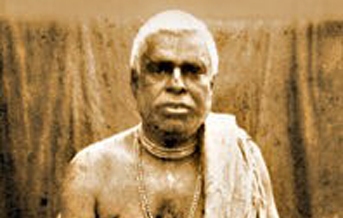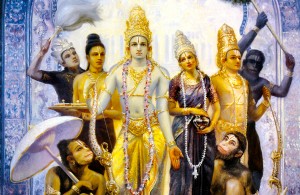But the fact that our notions of the ways in which we might be authentic are so deeply cultural should give us pause. What we take individualization to consist in, the content of an authentic way of being, is culturally shaped. We’re not individuals all on our own: we’re individuals only in a social context. Perhaps that doesn’t matter. But it does suggest that being authentic is not a way of escaping some sort of conformism, but another way of conforming.
It might be defended, on the grounds that the suburban accountant role is sufficiently common that were someone simply mindlessly to conform, they might drift into it. But “accountant” is far from the most common job. Accountants are vastly outnumbered by truck drivers and construction workers. But truck drivers and construction workers are conspicuously absent from examples of inauthenticity- so “drift” doesn’t do the explanatory work here.
But let’s think about a very standard example of inauthenticity: the suburban accountant. He (it’s almost always a ‘he’ in these examples) works in a 9-5 job he commutes to, he drives a mid-range car and once a year he takes a vacation to Disneyland with his wife and 2 children. Carl Elliot has influentially argued that any enhancement that reconciled a person to that life would leave the person worse off overall than if they were unhappy. But why is this the most common exemplar of inauthenticity?
Authenticity is a widely espoused ideal; often under that name but also under other labels. People take pride in being individuals, set apart from the crowd, in not following the herd, in thinking for themselves. To be accused of conformism stings.
Our very conception of authenticity, I suggest, is a deeply cultural one. It’s not merely cultural in the same way that all concepts are: acquired through socialization. It’s more deeply cultural in that in applying it, we are guided by further ideas circulating in our culture. But the concept of authenticity is an individualist concept: we become authentic by becoming who we each, individually, are – not in conforming. If the attempt to be authentic must consist in conforming to a cultural stereotype of what it amounts to, then it’s incoherent. We individualize ourselves by doing what the crowd thinks we should do to individualize ourselves.
We might think of authenticity in a more formal way: an authentic life is whatever life accords with what we find within, when we take our own measure (as Charles Taylor puts it). That would allow for the possibility of the authentic accountant: deep down, perhaps that is who I really am. That seems less self-defeating than a conception of authenticity that has us individualizing ourselves in a conformist way. There’s nothing incoherent in thinking that individualization is important, even if we only think that due to socialization.
Perhaps, instead, the idea is that being an accountant is boring. Prima facie, that’s a little odd, because after all, few of us who deride accountancy have much experience of it. Worse, we have no grounds on which to compare it to other jobs that escape condemnation as inauthentic. Is accountant really less interesting than truck driver? Some people enjoy driving, but day after day of highways doesn’t sound exciting to me.
Even if accountancy is especially boring, it’s still odd to think that accountants can’t be authentic. Why shouldn’t the suburban accountant be authentic? Why think that people have essences conforming to which makes lumberjack, artist or (as in the Monty Python sketched linked to above) lion tamer the right profession for them? Perhaps accountancy isn’t particularly interesting, but most people are no more interesting than average, after all. There should be many people for whom accountancy is the authentic life.
By Neil Levy
The real reason why accountant is the exemplar of inauthenticity while truck driver is not, I strongly suspect, is simply that it’s a cultural stereotype: an idea that circulates widely in our societies. In accepting it, we conform to ideas prevalent in our culture. Conversely, in accepting that writer and artist and lion tamer are especially authentic roles, we conform to another cluster of ideas.




